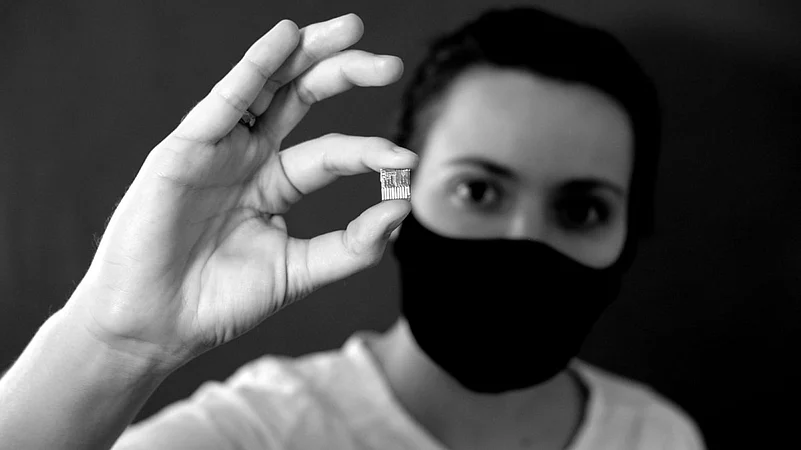In the two years since the Covid-19 pandemic began, masks have become one of the most commonly used items around the world. With newer variants of the virus and fresh waves of the pandemic rolling in, scientists are recommending the continued use of masks to keep the virus at bay, irrespective f how “mild” or “severe” the variant is. The result has been a boom in the types of face masks available in the market.
Three-layer masks, surgical masks, N-95 masks, even respiratory masks - you name it and it already exists. But as a standard, most masks provide certain basic (and essential) features - providing source control to prevent further spread of the virus from an infected person, and protecting the individual wearing it. But what if a mask could not only protect you from Covid-19 but also tell you if you are Covid-positive or in the vicinity of Coronavirus? Enter smart masks.
Advertisement
You had already heard of smartphones, smart TVs and smartwatches. Smart masks run on a similar principle. They take the ordinary mask and transform it into a "thinking" machine. While research into vaccines and cures for coronavirus have hoarded much of the headlines in the past two years, masks have quietly remained at the forefront of the fight, with several experts dubbing it as the only real barrier between you and the virus. While N95 masks are usually recommended for regular use, scientists have also invested thought and technology into this humble necessity and created futuristic "smart masks" that look right out of a sci-fi film set.
Advertisement
Here are some of the most out-of-the-world smart masks that have surfaced since the emergence of SARS-CoV-2:
Masks that can detect Covid-19
Several masks today have the ability to detect the Covid-19 virus, much like an RT-PCR test or a rapid antigen test kit. These specialised masks are made using superior technology that harnesses the powers of AI and machine learning to provide virus detection. Scientists from Harvard and MIT, for instance, have used freeze-dried cellular machinery to create sensors that can detect Covid-19 in 90 minutes from exposure. The masks are fitted with tiny sensors that can be trained to detect a variety of viruses. The technology was first devised to detect Ebola and Zica viruses, a newsletter by MIT informs. Not just masks, the technology can be used to create lab coats and other wearables that can aid healthcare workers treating Covid-19 patients.
Masks with Ostrich antibodies
A lot of researchers have been keenly studying animals to find solutions to the Covid-19 crisis in the human world. First, scientists studied lama antibodies for finding possible cures to Covid. Now, Japanese researchers have developed masks made of antibodies found in ostriches to detect Covid-19. ?The glow-in-the-dark masks can be used to detect virus particles when held under ultraviolet light. According to Yasuhiro Tsukamoto and the team that created the mask at Kyoto Prefectural University, ostrich antibodies have a natural resistance toward Covid-19 and masks made of these antibodies can be used to detect asymptomatic Covid-19 cases. With several cases of Omicron - the latest variant of concern of Covid-19 - are being said to be asymptomatic, the mask might come in handy. In case the masks come in contact with the virus, they glow under UV light when sprayed with a certain chemical.
Advertisement
Masks that can predict your general health
Scientists from UCLA, Northwestern University and Georgia Institute of Technology among others have come up with a platform called ‘FaceBit’ to experiment with novel mask technologies and have since created a “smart” monitoring device that can turn any mask into a “smart mask”. Once fitted with ‘FaceBit’, the mask can not only protect the wearer from viruses but also inform them when it was time to throw the mask out and get a new one. The "FaceBit" can technology can be fit on masks that connect the mask to the wearer’s smartphone. Once connected, the mask can monitor the wearer’s heart rate and general health statistics, Forbes reported. The mask can also inform the wearer in case of a leak or tear in the mask that may otherwise go unnoticed.




















